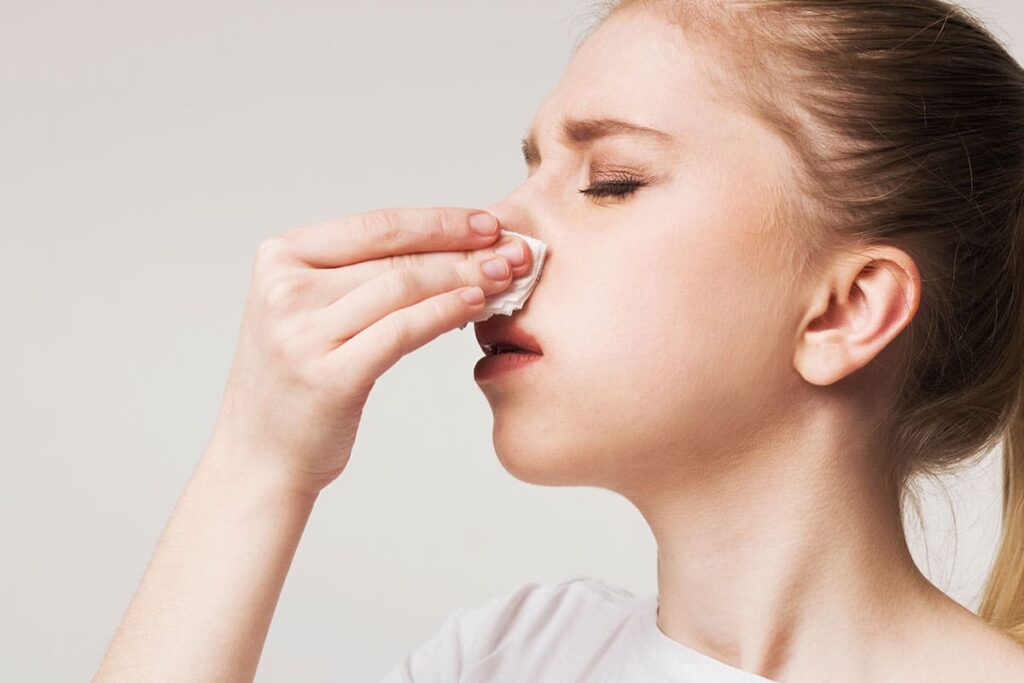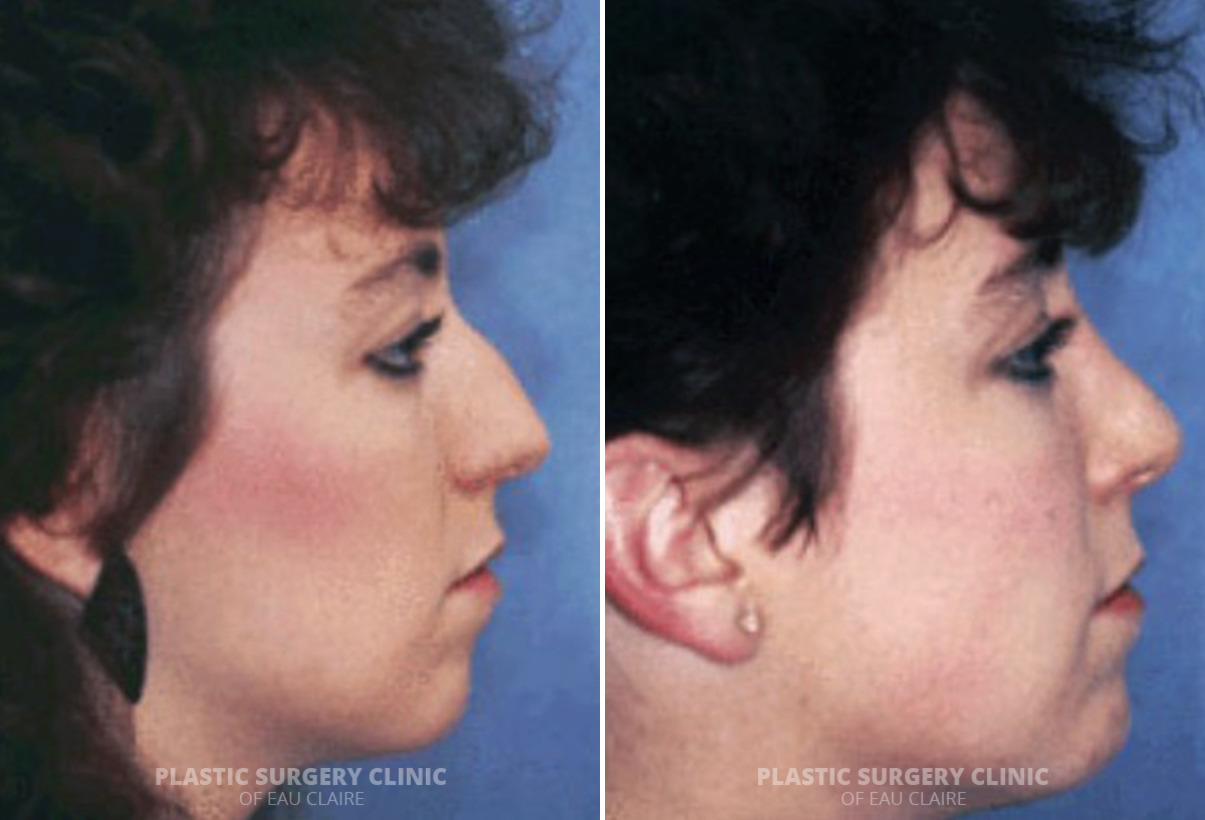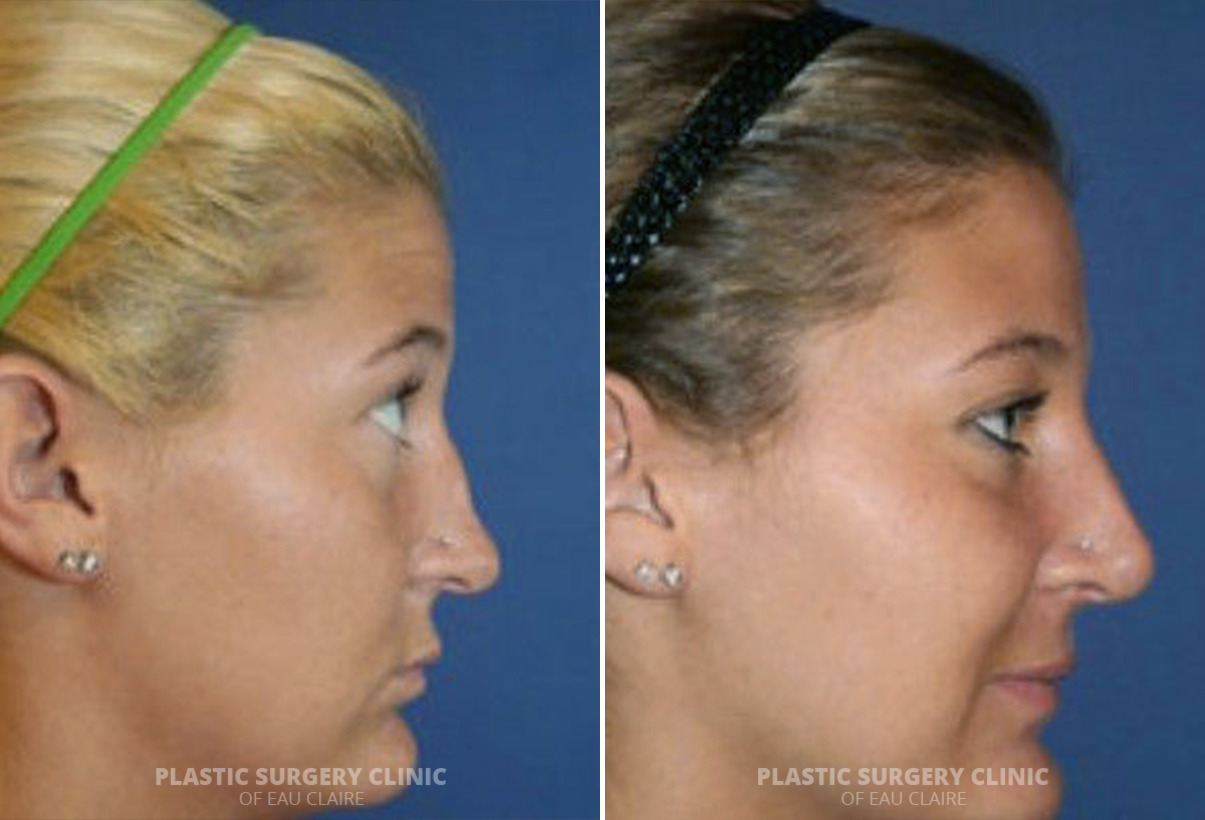Have you ever wondered why nasal polyps sometimes return after a nose job surgery? This irritating condition can recur, but with careful prevention and treatment, you can keep them under control.
Dr. Ember Ewings, a renowned specialist in ear, nose, and throat conditions, discusses why this occurs and how to treat it.
Understanding how your body reacts to surgery is key to a good recovery. Dr. Ewings, an experienced surgeon, shares tips to help you prevent nasal polyps from coming back after rhinoplasty, making your recovery smoother and more comfortable.

Prevention and Care for Nasal Polyps After Rhinoplasty
- Monitor for nasal polyps post-rhinoplasty and seek medical advice for any persistent changes or complications.
- Follow your surgeon’s post-operative instructions diligently, including taking prescribed medications and attending follow-up appointments.
- Implement preventative measures at home, such as using saline rinses, humidifiers, and avoiding irritants like smoke and pollution.
- Recognize early signs of nasal polyps, including persistent stuffiness, diminished sense of smell, and frequent sinus infections, and seek early medical intervention.
- Adopt a healthy lifestyle with a diet rich in anti-inflammatory foods, regular exercise, and consider additional medical options like steroidal treatments if polyps recur.
Understanding Nasal Polyps and Rhinoplasty
Nasal polyps are benign growths seen all over the nasal cavity. They can cause respiratory problems, frequent sinus infections, and reduced sense of smell.
Sometimes nasal polyps arise following cosmetic nasal surgery. This occurs because nasal tissues may become damaged by the surgical method, which requires modifying bone and cartilage. While specific diseases, including cystic fibrosis or asthma, can make polyps more likely to form, the following factors could also contribute to the formation of polyps following cosmetic or even functional rhinoplasty:
- Surgical irritation: Working on the nasal structure can cause long-term inflammation, potentially leading to polyps.
- Healing complications: If recovery from surgery is complicated, the inflammation can promote the growth of polyps.
- Preexisting conditions: People already prone to nasal polyps may experience worsening conditions post-surgery.
Monitoring for nasal polyps after rhinoplasty and seeking medical advice for any complications is crucial.
Can Nasal Polyps Go Away on Their Own?
Nasal polyps typically do not disappear on their own without treatment. While small polyps may shrink temporarily with proper care, such as using saline rinses or addressing underlying inflammation, larger polyps often require medical intervention. Treatments like steroid sprays or even surgery may be necessary to fully resolve the issue. Consulting a healthcare provider ensures the most effective management strategy.
Preventing Nasal Polyps After Rhinoplasty
Preventing nasal polyps is critical to keeping the results of rhinoplasty. These growths can lead to issues such as nasal blockage, which affects breathing. Patients who want to maintain the benefits of their cosmetic surgery must take precautions to avoid polyp growth.
Nasal polyps are linked to ongoing inflammation and may return after removal. The prevention includes:
- Seeing your doctor for regular check-ups.
- Taking medicine to lower inflammation.
- Controlling allergies that can lead to polyps.
- Using saline rinses to clean nasal passages.
Staying on top of these actions can help ensure the nose’s structure remains as intended after surgery and that improvements in appearance and breathing last.
Step 1: Follow Your Surgeon’s Post-Operative Instructions
After your surgical procedure, it’s critical to manage pain and avoid infection. Take medications exactly as prescribed to help with your recovery, especially during the days after surgery. Your prescribed medications might include pain relievers, antibiotics for preventing infection, and nasal sprays to decrease inflammation in your nasal passages.
Attending every follow-up appointment is important. Your facial plastic surgeon checks the healing of your nose and nasal tissues. These visits help spot any complications like infection or issues with healing and give you a chance to ask questions. Even if you feel good, don’t skip these appointments, as some functional issues may not be obvious to you. You’ll usually need to see your cosmetic surgeon several times in the first month after the operation.
Remember to always:
- Take your medications on time
- Go to all scheduled visits at the facial plastic surgeon’s office
This way, you ensure a better recovery after your surgical procedure, avoiding unnecessary complications or infections. Your nose and nasal passages can heal well with proper care, reducing the risk of issues.
Step 2: Implement Preventative Measures at Home
To avoid the development of nasal polyps, keep your nasal passages clean. To decrease inflammation and the possibility of complications, you should:
- Blow your nose gently to eliminate the mucus.
- Use a humidifier to keep the nasal passageways wet.
- Stay away from cigarette smoke and pollution.
This will improve your breathing and reduce the chance of nasal obstruction and inflammation, both of which are common causes of nasal polyps.
Saline sprays can help keep your nasal cavity wet and prevent discomfort. Remember to:
- To avoid excessive use, carefully follow the instructions.
- Saline nasal sprays alone will not prevent polyps.
An allergy management plan is critical in preventing nasal polyps because allergic reactions can cause inflammation in your nasal passages, raising your polyp risk. To manage allergies:
- Avoid known allergies wherever possible.
- Use steroid nasal sprays under professional supervision.
- Consult a specialist for personalized allergy strategies.
By doing these steps at home, you can improve your nasal health and prevent the formation of nasal polyps.
Step 3: Recognizing Early Signs of Nasal Polyps
Early detection of nasal polyps is crucial to prevent complications and ensure better treatment outcomes. Look for symptoms such as:
- A persistent stuffy nose, runny nose, and breathing difficulties, which may indicate nasal polyps.
- A diminished sense of smell due to blocked nose passages.
- Unusual nosebleeds not caused by dry air or allergies.
- Repeated sinus infections point to ongoing inflammation in your nasal passages.
These uncomfortable symptoms may initially be mild, but they often worsen over time.
Contact your doctor if you experience:
- Continuous symptoms lasting more than 10 days that don’t improve with decongestants or antihistamines.
- Problems with breathing through your nose that affect daily life or sleep.
- Persistent pain in your facial region or upper teeth, suggests that the swelling in the nasal area is impacting nearby structures.
Seeking early medical advice for nasal polyps can help you avoid further issues and enhance your well-being.
Are You Ready For A Consultation?
Join our satisfied clients who’ve experienced safe, effective treatments
Step 4: Adopt a Healthy Lifestyle
Dietary Considerations
To protect nasal health and reduce the risk of polyp development, it’s vital to focus on your diet. Eat foods that fight inflammation, like those with omega-3 fatty acids—think salmon and walnuts—and antioxidants, like berries and greens. Cutting back on salty and sugary foods is also key for maintaining nose health. A smart diet can help with breathing, ease pain, and prevent other nasal complications.

Exercise and Its Impact
Exercise is great for the entire body, and the nasal passages are no exception. It boosts circulation, ensuring the nose’s cartilage stays healthy. Increased breathing during exercise opens up the nasal pathways.
Physical activities that promote deep breathing, such as yoga and swimming, are particularly good for the muscles used in breathing and for supporting the head and nose. Here’s a common procedure to include exercise in your daily life for better nasal health:
- Get at least 30 minutes of medium-intensity aerobic exercise daily.
- Do breathing exercises to enhance lung capacity and nasal function.
- Add workouts that focus on neck and head muscles to help support nasal structures.
These lifestyle adjustments, such as paying attention to your nutrition and getting enough exercise, can significantly improve your nose health and prevent polyps.
Step 5: Look into additional medical options
Steroidal Treatments
When nasal polyps recur or do not respond to early treatments, steroidal therapies may be employed. Nasal steroid sprays reduce swelling and can make the larger polyps smaller, which might help with symptoms like airway obstruction, oral steroids are also valid when the first ones are not effective. These treatments include:
- Topical nasal sprays that directly affect the nasal wall.
- Systemic steroids for a stronger approach when needed.
Topical treatment options are often the first choice as they have fewer side effects.
When Nasal Polyp Surgery is Considered
If steroids aren’t enough and complications occur, more surgery may be needed. Endoscopic sinus surgery is an option when the structure of the sinuses needs improvement to help with drainage and prevent polyps from coming back. It can involve taking out the tissue and adjusting the shape of the sinus wall for better airflow. Nasal polyp surgery has risks, like excessive bleeding or damaging cartilage. It’s generally only suggested after careful evaluation. The decision for surgery usually takes into account factors such as the severity of the nasal obstruction, the presence of sinusitis complications, or other issues affecting a person’s life.
Primary Rhinoplasty Before and After Photos


* Each patient is unique and individual results may vary.
Additional Advice and Precautions
Understanding Risks of Over-the-Counter Medications
Using over-the-counter (OTC) medicines can provide quick relief from postoperative discomfort or facial pain. It’s important, however, to handle these drugs carefully to prevent complications. For instance, using decongestants too long can make nasal congestion worse, which is known as rebound congestion. Painkillers can ease sinus pain but may lead to liver damage or stomach problems when used too much.
Read labels and follow dosing instructions to prevent harming your nose or worsening medical conditions. Stick to the right duration and dosage.
Exploring Other Remedies
Be mindful when trying alternative treatments for sinus infections or congestion. It’s necessary to check the safety of these options and their scientific backing. Alternative treatments can cause complications or react with other medications. Consider these tips:
- Look into the safety of herbal supplements to avoid problems with other medications or health issues.
- With nasal irrigation, such as neti pots, always use sterile water to protect the nasal wall from infection.
Using some natural remedies incorrectly could affect your sense of smell or cause an infection.
If you’re considering an alternative method, don’t let it replace medical advice or treatment for severe sinus issues. Talk to a healthcare professional before adding something new to your routine.
Consult with an Expert Plastic Surgeon
Understanding the risk of nasal polyps after rhinoplasty is crucial for your long-term comfort and health. Ensure your recovery is smooth and complication-free by reaching out for expert guidance. Dr. Ember Ewings combines extensive experience with a commitment to personalized patient care, providing reassurance that you’re in knowledgeable hands.
Don’t let post-operative concerns linger unanswered. Schedule a consultation with Dr. Ewings today to explore your preventive options and establish a care routine suited to your unique needs. Your well-being deserves the attention of a specialist committed to excellence.


